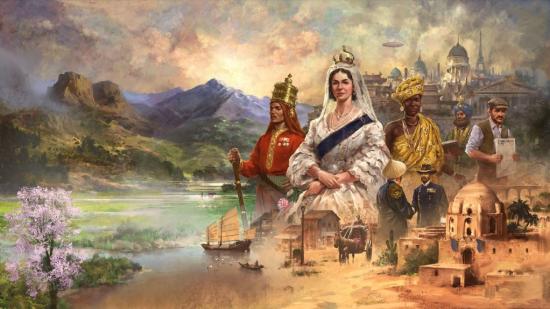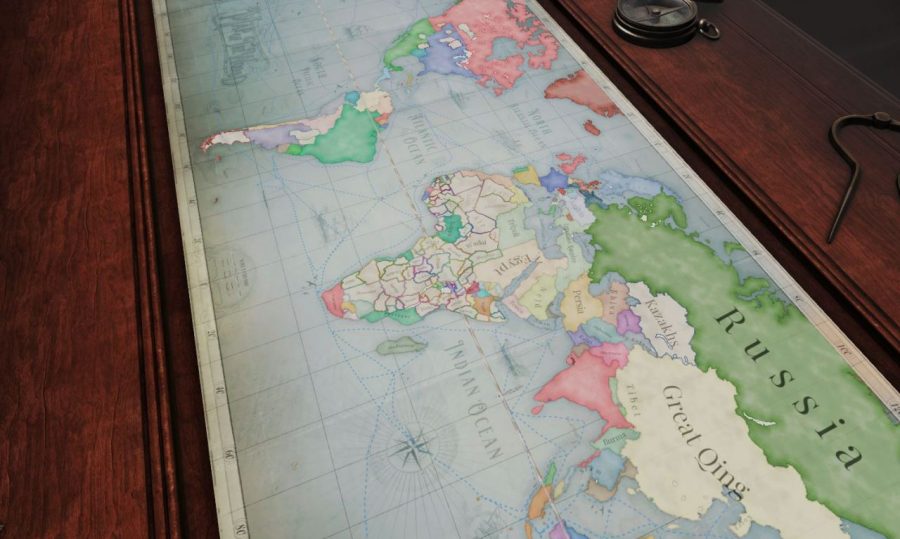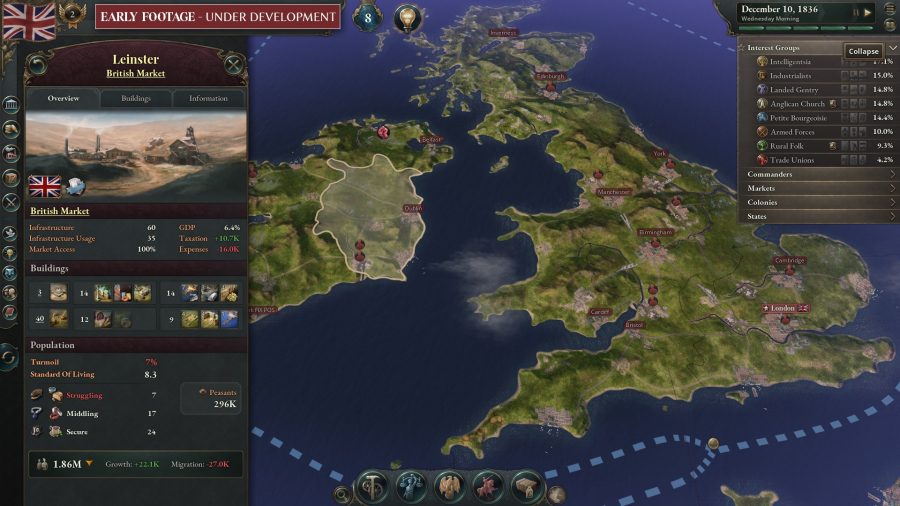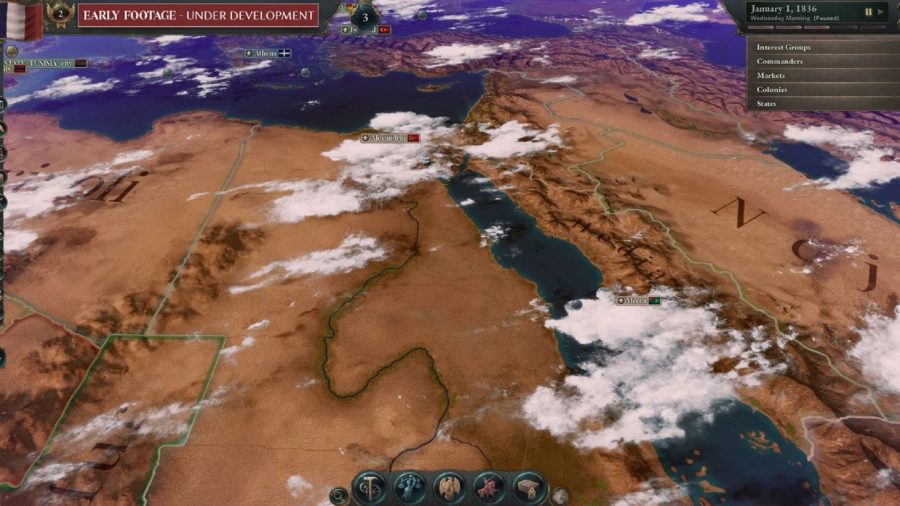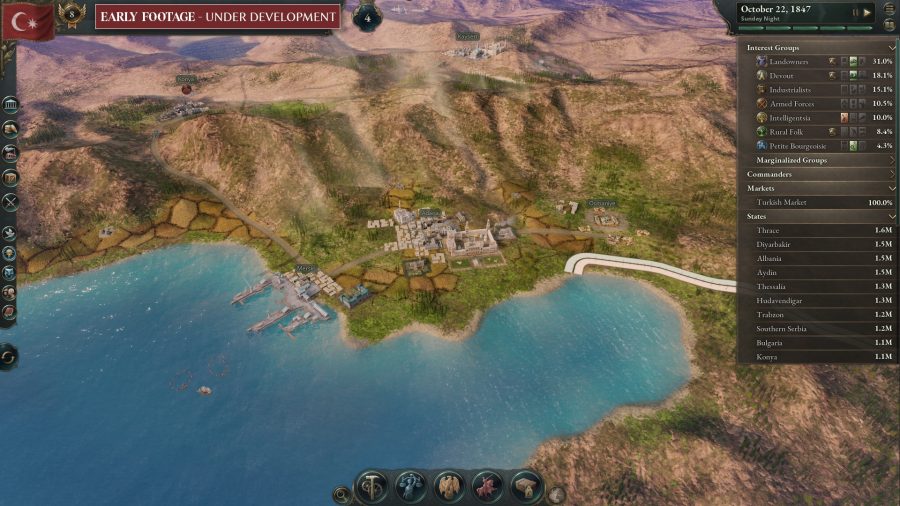Victoria 3 is actually happening. I’ve been joking about it for months, but part of me was ready to be disappointed. Europa Universalis 5 would, technically, have been next in line, and the 19th century doesn’t come with the same nostalgia (or baggage) as Ancient Rome. Perhaps Imperator’s financial success, regardless of its development woes, made it easier for Paradox to gamble on giving into the meme for a second time.
It’s still early days and we were only given a brief glimpse, but there’s a lot to unpack. I have a few pages of notes myself, but this Reddit dump from a fellow writer who also covers the grand strategy game circuit just shows how much we can already expect to dig into in this exciting strategy game of economic, social, and political revolutions.
I have too many thoughts for one article, so I’ve decided to focus on the one feature that I think had the most impact with me – diplomatic plays. This mechanic represents a new layer of interaction that sits between the realms of diplomacy and warfare, but can touch on other aspects.
Things like annexation of subjects, unification goals, and transference of subjects, through to options that would previously have been listed as ‘casus belli’ – accepted reasons to go to war – are now under one umbrella. Whenever you want something from another entity (bar run-of-the-mill diplomacy, which still exists), it will likely involve a diplomatic play. Crucially, it will serve as a prelude to any actual fighting in the game.
“Everything that you can get from war, you should also be able to get from diplomacy,” explains Mikael Andersson, a designer on Victoria 3. “We really wanted to make sure that the conflicts between countries in this game were primarily on the diplomatic table.
Related: Games to play while we wait for Victoria 3
“Warfare and military should play a very important role, because you have to be able to protect your sovereignty as a nation. But it shouldn’t be about just trying to conquer other nations.”
Andersson and the game’s director, Martin Anward, have been very keen to de-emphasise the role of warfare in Victoria 3, something that’s put me a little on edge. Even in CK3, which has some very robust and enjoyable role-playing systems, you end up doing a lot of fighting. So I wonder if this is the lady protesting too much in insisting that warfare is not going to be the emphasis, but managing expectations is important during these early stages. Truthfully, I’m still excited by the systems the studio is promoting instead of warfare.
During the press demonstration, we were walked through a diplomatic play that anyone who’s played Prussia in Victoria 2 would recognise – trying to wrest Holstein from Denmark (a prerequisite for forming Germany in the previous game).
As Prussia, the developers put forward their desires for Holstein towards the international community. Denmark’s AI responds with demands of their own. This is essentially a twisted game of bluff, in which both sides are free to raise the stakes regarding the outcome of this disagreement if it devolves into war and one party wins. The crux of these plays, though, is in the response of the international community to your play.
Depending on where you are, and what the diplomatic play involves, various other nations can intervene and choose a side. Not all of them will be relevant – even though you could try and sway all of the 100 playable nations to your cause, it’s actually only the decisions of the major powers that matter. In the demonstration, Great Britain gets swayed to Russia’s side, but Austria backs Denmark. The developer decides to back down as the UK can’t be relied upon in a war of this nature, and Prussia concedes to Denmark’s demands. It involves loss of territory, but the devs are keen to emphasise that in the grand scheme of things this is a minor set-back.
“We really want diplomatic plays to be dangerous to engage in,” Mikael explains. “But we also want to make sure that a player can play their cards right, and be fairly assured that because [they] lined up all [their] ducks in the right rows, [they’re] probably going to be able to get this without going to war for it. We can’t have that if we don’t build some pretty complex player-facing prediction tools.”
Anward tells us that the diplomatic play system is inspired in part by Victoria 2’s ‘crises’ system, which was introduced in the Hearts of Darkness expansion. It’s certainly familiar to me, as someone who’s played a fair bit of Victoria 2, and I can’t wait to see how it’s been applied to the rest of the game rather than being reserved for special events.
The system appears to be quite flexible, too, and Andersson explains that other things have been brought under its umbrella, like trying to stage a coup or a revolution in your country to effect more drastic changes. It’s not as simple as pressing a button any more.
But beneath the posture and bluster of diplomatic plays, the truth is that, eventually, someone, somewhere, is going to go to war. Not every bluff ends peacefully, and the era that Victoria 3 covers saw its share of blood.
This is an era that involved everything from the 1879 Anglo-Zulu War to World War I. From colonial skirmishes through to major conflicts between world powers, a wide range of conflict scales happened within this time-period. Whatever form the military side of things takes, the mechanics need to be robust and flexible.
“In terms of the scale, this is definitely something that we do and will represent in the game,” Andersson tells us. “It has also been a design challenge, obviously, because you are able to play countries that [don’t have] firearms, and you are also able to play countries with enormous artillery pieces. There’s a huge breadth and we have to make sure that we represent that correctly.”
Anward mentions they want to look at things such as limited wars, but they’re not talking about the warfare mechanics right now. Neither are they talking about colonisation, although it has been mentioned that nations can colonise land belonging to the more tribal-like “decentralised” polities without needing to go to war with them.
Related: Victoria 3 release date and everything else we know
Victoria 3 doesn’t have a release window, although speculation based on the past few Paradox games puts it roughly a year from now.
